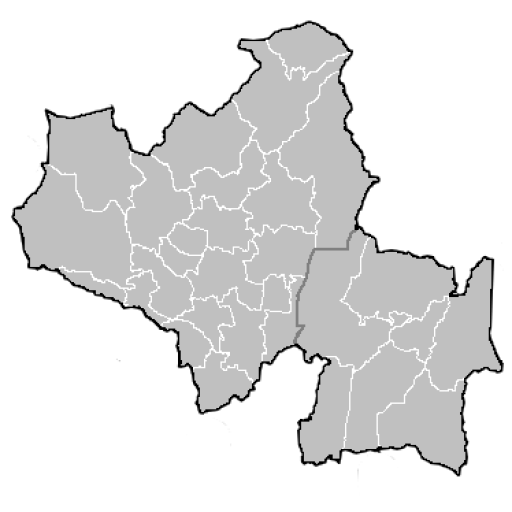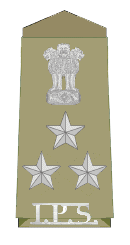|
Ana Seneviratne
Ganegoda Appuhamelage Don Edmund Ananda Seneviratne (20 April 1927 – 26 September 2015) was a former Sri Lankan Inspector General of Police (Sri Lanka), Inspector-General of Police, Sri Lankan High Commissioner (Commonwealth), High Commissioner to Malaysia, former adviser to Cabinet Minister of National Security and ex member Public Service Commission of Sri Lanka. Early life and education Ana Seneviratne was born to Irwin Seneviratne and Irene Seneviratne ''née'' Rodrigo from Sapugaskanda, Heiyantuduwa in Gampaha District. He had three brothers. Eldest brother Tissa was an Engineer and the two younger brothers were Nalin Seneviratne, an army officer who served as Commander of the Sri Lankan Army from 1985 to 1988 and Gamini Seneviratne, a diplomat who was Sri Lankan Ambassador to Thailand and Republic of Korea. Educated at the Royal College, Colombo (1938 to 1946), he went to graduate from the University of Ceylon, Colombo (now University of Colombo), with an LL.B (Ho ... [...More Info...] [...Related Items...] OR: [Wikipedia] [Google] [Baidu] |
Ceylon
Sri Lanka (, ; si, ශ්රී ලංකා, Śrī Laṅkā, translit-std=ISO (); ta, இலங்கை, Ilaṅkai, translit-std=ISO ()), formerly known as Ceylon and officially the Democratic Socialist Republic of Sri Lanka, is an island country in South Asia. It lies in the Indian Ocean, southwest of the Bay of Bengal, and southeast of the Arabian Sea; it is separated from the Indian subcontinent by the Gulf of Mannar and the Palk Strait. Sri Lanka shares a maritime border with India and Maldives. Sri Jayawardenepura Kotte is its legislative capital, and Colombo is its largest city and financial centre. Sri Lanka has a population of around 22 million (2020) and is a multinational state, home to diverse cultures, languages, and ethnicities. The Sinhalese are the majority of the nation's population. The Tamils, who are a large minority group, have also played an influential role in the island's history. Other long established groups include the Moors, the Burghers, ... [...More Info...] [...Related Items...] OR: [Wikipedia] [Google] [Baidu] |
Matugama
Mathugama ( si, මතුගම, ta, மத்துகம) is a semi urban town surrounded by mountains. It is an electorate of the Kalutara district, in Western Province, Sri Lanka. The town is located to the south of Colombo. Mathugama is part of the ''Pasdun Korale'' ( si, පස්දුන් කෝරලේ) (meaning: county of the five ''yojanas''), created when King Parakramabahu the Great drained the Kalu Ganga basin. In the days of the State Council of Ceylon, State Council it comprised the present-day Agalawatte, Agalawatta, Bulathsinhala and Matugama constituencies. In 1946, it was divided into two, the eastern portion becoming Agalawatte, Agalawatta (itself subdivided in 1960 by the creation of Bulathsinhala). Since 1989 it has been an electoral division of the Kalutara District, not a constituency sending a member to Parliament of Sri Lanka, parliament in its own right. Members of State Council The constituency was represented in the State Council by: * D. ... [...More Info...] [...Related Items...] OR: [Wikipedia] [Google] [Baidu] |
Eastern Province, Sri Lanka
The Eastern Province ( ta, கிழக்கு மாகாணம் ''Kiḻakku Mākāṇam''; si, නැගෙනහිර පළාත ''Næ̆gĕnahira Paḷāta'') is one of the nine provinces of Sri Lanka, the first level administrative division of the country. The provinces have existed since the 19th century but did not have any legal status until 1987 when the 13th Amendment to the Constitution of Sri Lanka established provincial councils. Between 1988 and 2006 the province was temporarily merged with the Northern Province to form the North Eastern Province. The capital of the province is Trincomalee. History In 1815 the British gained control of the entire island of Ceylon. They divided the island into three ethnic based administrative structures: Low Country Sinhalese, Kandyan Sinhalese and Tamil. The Eastern Province was part of the Tamil administration. In 1833, in accordance with the recommendations of the Colebrooke-Cameron Commission, the ethnic based admi ... [...More Info...] [...Related Items...] OR: [Wikipedia] [Google] [Baidu] |
North Central Province, Sri Lanka
North Central Province ( si, උතුරු මැද පළාත ''Uturumæda Paḷāta'', ta, வட மத்திய மாகாணம் ''Wada Maththiya Mākāṇam'') is one of the nine provinces of Sri Lanka, the first level administrative division of the country. The provinces have existed since the 19th century but did not have any legal status until 1987 when the 13th Amendment to the Constitution of Sri Lanka established provincial councils. The province is the largest by size, and second least populated in the country. The province consists of the districts of Anuradhapura and Polonnaruwa, both of which were important ancient Sri Lankan kingdoms. The climate is semi-arid, and the forests are dry evergreen forests. History The centralised system of Sri Lanka, which is a unitary state, failed to satisfy the aspirations of the people. There was growing insistence on decentralisation of administrative processes to achieve rapid economic and social development of t ... [...More Info...] [...Related Items...] OR: [Wikipedia] [Google] [Baidu] |
Deputy Inspector General Of Police
A Deputy Inspector General of Police (abbreviated as DIG) is a high-ranking official position in Police in Bangladesh, India, Kenya, Malaysia, Nepal, Pakistan, Nigeria and Sri Lanka. India Deputy Inspector General of Police (DIG) is a rank in the Indian police, just below Inspector General of Police. It is a rank held by Indian Police Service officers who had successfully served as Senior Superintendent of Police or Deputy Commissioner of Police (Selection Grade) and got promoted to this rank. DIG-ranked officers wear Gorget patches on their collar which have a dark blue background and a white line stitched on it, similar to SSPs There is no limit to the number of DIGs a state can have and most states have several DIGs. DIGs are in pay band 4 ( to ) with grade pay . Bangladesh In Bangladesh Police, the post of a Deputy Inspector General of police is an important appointment. It's the third highest post in the force. Generally a DIG commands police range. But some times ... [...More Info...] [...Related Items...] OR: [Wikipedia] [Google] [Baidu] |
Special Branch
Special Branch is a label customarily used to identify units responsible for matters of national security and Intelligence (information gathering), intelligence in Policing in the United Kingdom, British, Commonwealth of Nations, Commonwealth, Irish, and other police forces. A Special Branch unit acquires and develops intelligence, usually of a political or sensitive nature, and conducts investigations to protect the Sovereign state, State from perceived threats of subversion (politics), subversion, particularly terrorism and other extremist political activity. The first Special Branch, or Special Irish Branch, as it was then known, was a unit of London's Metropolitan Police formed in March 1883 to combat the Irish Republican Brotherhood. The name became Special Branch as the unit's remit widened to include more than just Irish Republican-related counterespionage. Australia Most state police forces and the federal police had a Special Branch. They were tasked mainly with monit ... [...More Info...] [...Related Items...] OR: [Wikipedia] [Google] [Baidu] |
Central Province, Sri Lanka
The Central Province ( si, මධ්යම පළාත ''Madhyama Paḷāta'', ta, மத்திய மாகாணம் ''Madhdhiya Mākāṇam'') is one of the nine provinces of Sri Lanka, the first level administrative division of the country. (The provinces have existed since the 19th century but did not have any legal status until 1987 when the 13th Amendment to the Constitution of Sri Lanka established provincial councils.) The Central Province is primarily in the central mountainous terrain of Sri Lanka. It is the 6th largest province by area and is home to 2.5 million people. It is bordered by North Central Province to the north, Uva Province to the east, North Western Province to the west and Sabaragamuwa Province to the south and west. The province's capital is Kandy. The cities of Matale and Nuwara Eliya are in the Central Province. The province is famous for its production of Ceylon tea, planted by the British in the 1860s after a devastating disease kill ... [...More Info...] [...Related Items...] OR: [Wikipedia] [Google] [Baidu] |
Western Province, Sri Lanka
The Western Province ( si, බස්නාහිර පළාත ''Basnāhira Paḷāta''; ta, மேல் மாகாணம் ''Mael Mākāṇam'') is one of the nine provinces of Sri Lanka, the first level administrative division of the country. The provinces have existed since the 19th century but did not have any legal status until 1987 when the 13th Amendment to the Constitution of Sri Lanka established provincial councils. Western Province is the most densely populated province in the country and is home to the legislative capital Sri Jayawardenepura Kotte as well as to Colombo, the nation's administrative and business center. History Parts of present-day Western Province were part of the pre-colonial Kingdom of Kotte. The province then came under Portuguese, Dutch and British control. In 1815 the British gained control of the entire island of Ceylon. They divided the island into three ethnic based administrative structures: Low Country Sinhalese, Kandyan Sinhalese an ... [...More Info...] [...Related Items...] OR: [Wikipedia] [Google] [Baidu] |
Sabaragamuwa Province
The Sabaragamuwa Province ( si, සබරගමුව පළාත ''Sabaragamuwa Paḷāta'', ta, சபரகமுவ மாகாணம் ''Sabaragamuwa Mākāṇam'') is one of the nine provinces of Sri Lanka, the first level administrative division of the country. The provinces have existed since the 19th century but did not have any legal status until 1987 when the 13th Amendment to the Constitution of Sri Lanka established provincial councils. The Sabaragamuwa Province contains two districts: Ratnapura and Kegalle. It is named after its former indigenous inhabitants, namely the Sabara, an indic term for hunter-gatherer tribes, a term seldom used in ancient Sri Lanka. Sabaragamuwa University is in Belihuloya. Districts Sabaragamuwa is divided into 2 districts: * Kegalle District * Ratnapura District Municipal Council * Ratnapura Urban Council * Balangoda * Embilipitiya * Kegalle Other Towns * Bulathkohupitiya * Belihuloya * Eheliyagoda * Kalawana * Kuruwita * Ma ... [...More Info...] [...Related Items...] OR: [Wikipedia] [Google] [Baidu] |
Kegalle District
Kegalle is a district in Sabaragamuwa Province, Sri Lanka. It is one of 25 districts of Sri Lanka, the second level administrative division of the country. The district is administered by a District Secretariat headed by a District Secretary (previously known as a Government Agent) appointed by the central government of Sri Lanka. It was a former Dissavani of Sri Lanka. It covers an area of . The district has a population of 837,179 according to 2012 Census, which is approximately 4.0% of the total population of Sri Lanka. Physical information The District of Kegalle is situated in between the central highlands and western southern plains and has an enchanting environment. The height of the western region is above sea level while the eastern region exceeds . Rubber cultivation has stretched over most of the area of the District and minor export crops from the district include coffee, cocoa, pepper, clove and nutmeg. Sri Lanka's best graphite mine is situated at Bogala in ... [...More Info...] [...Related Items...] OR: [Wikipedia] [Google] [Baidu] |

_fort.jpg)



.jpg)